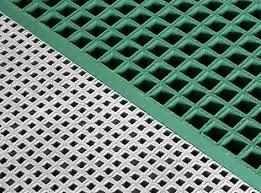
-
 Afrikaans
Afrikaans -
 Albanian
Albanian -
 Amharic
Amharic -
 Arabic
Arabic -
 Armenian
Armenian -
 Azerbaijani
Azerbaijani -
 Basque
Basque -
 Belarusian
Belarusian -
 Bengali
Bengali -
 Bosnian
Bosnian -
 Bulgarian
Bulgarian -
 Catalan
Catalan -
 Cebuano
Cebuano -
 China
China -
 China (Taiwan)
China (Taiwan) -
 Corsican
Corsican -
 Croatian
Croatian -
 Czech
Czech -
 Danish
Danish -
 Dutch
Dutch -
 English
English -
 Esperanto
Esperanto -
 Estonian
Estonian -
 Finnish
Finnish -
 French
French -
 Frisian
Frisian -
 Galician
Galician -
 Georgian
Georgian -
 German
German -
 Greek
Greek -
 Gujarati
Gujarati -
 Haitian Creole
Haitian Creole -
 hausa
hausa -
 hawaiian
hawaiian -
 Hebrew
Hebrew -
 Hindi
Hindi -
 Miao
Miao -
 Hungarian
Hungarian -
 Icelandic
Icelandic -
 igbo
igbo -
 Indonesian
Indonesian -
 irish
irish -
 Italian
Italian -
 Japanese
Japanese -
 Javanese
Javanese -
 Kannada
Kannada -
 kazakh
kazakh -
 Khmer
Khmer -
 Rwandese
Rwandese -
 Korean
Korean -
 Kurdish
Kurdish -
 Kyrgyz
Kyrgyz -
 Lao
Lao -
 Latin
Latin -
 Latvian
Latvian -
 Lithuanian
Lithuanian -
 Luxembourgish
Luxembourgish -
 Macedonian
Macedonian -
 Malgashi
Malgashi -
 Malay
Malay -
 Malayalam
Malayalam -
 Maltese
Maltese -
 Maori
Maori -
 Marathi
Marathi -
 Mongolian
Mongolian -
 Myanmar
Myanmar -
 Nepali
Nepali -
 Norwegian
Norwegian -
 Norwegian
Norwegian -
 Occitan
Occitan -
 Pashto
Pashto -
 Persian
Persian -
 Polish
Polish -
 Portuguese
Portuguese -
 Punjabi
Punjabi -
 Romanian
Romanian -
 Russian
Russian -
 Samoan
Samoan -
 Scottish Gaelic
Scottish Gaelic -
 Serbian
Serbian -
 Sesotho
Sesotho -
 Shona
Shona -
 Sindhi
Sindhi -
 Sinhala
Sinhala -
 Slovak
Slovak -
 Slovenian
Slovenian -
 Somali
Somali -
 Spanish
Spanish -
 Sundanese
Sundanese -
 Swahili
Swahili -
 Swedish
Swedish -
 Tagalog
Tagalog -
 Tajik
Tajik -
 Tamil
Tamil -
 Tatar
Tatar -
 Telugu
Telugu -
 Thai
Thai -
 Turkish
Turkish -
 Turkmen
Turkmen -
 Ukrainian
Ukrainian -
 Urdu
Urdu -
 Uighur
Uighur -
 Uzbek
Uzbek -
 Vietnamese
Vietnamese -
 Welsh
Welsh -
 Bantu
Bantu -
 Yiddish
Yiddish -
 Yoruba
Yoruba -
 Zulu
Zulu
Advanced Fiberglass Winding Technology for Enhanced Performance in Industrial Applications and Innovations
The Importance of Fiberglass Winding Machines in Modern Manufacturing
Fiberglass winding machines play a pivotal role in the manufacturing sector, particularly in the production of composite materials. As industries increasingly seek lightweight, durable, and corrosion-resistant products, fiberglass has emerged as a favored material in various applications, ranging from automotive components to aerospace structures. The efficiency and capability of fiberglass winding machines significantly contribute to this trend.
Understanding Fiberglass Winding
Fiberglass winding is a specialized process that involves the application of fiberglass strands, typically impregnated with resin, onto a rotating mandrel to create composite structures. This method allows for the creation of complex shapes and geometries that are not easily achievable with traditional manufacturing techniques. The winding process can be tailored to meet specific requirements, making it adaptable for various applications, including pipes, tanks, and structural components.
Key Advantages of Fiberglass Winding Machines
1. Precision and Control Modern fiberglass winding machines are equipped with advanced control systems that allow for precise monitoring and adjustment of winding parameters. This capability ensures that the desired thickness, angle, and density of the fiberglass layers are achieved consistently, leading to high-quality end products.
2. Enhanced Production Speed The automation of the winding process significantly increases production speed compared to manual methods. This efficiency not only reduces labor costs but also enables manufacturers to meet growing market demands promptly.
3. Versatility Fiberglass winding machines can be configured for various winding patterns, such as helical, circumferential, and random orientations. This versatility allows manufacturers to cater to diverse applications, meeting specific performance criteria and optimizing material properties.
fiberglass winding machine

4. Reduced Waste With advanced fiber placement technology, fiberglass winding machines minimize material waste. By ensuring that the right amount of fiberglass is applied in the correct location, manufacturers can enhance material usage efficiency and lower production costs.
5. Improved Safety Automated fiberglass winding reduces the need for human intervention in hazardous environments, improving overall workplace safety. This is especially important given the potential health risks associated with handling fiberglass materials and resins.
Applications of Fiberglass Winding Machines
Fiberglass winding machines are employed across a variety of industries. In the automotive sector, they are used to manufacture lightweight components that contribute to fuel efficiency and performance. The aerospace industry benefits from the strength-to-weight ratio of fiberglass composites, making these machines essential for producing critical aircraft components.
In the construction sector, fiberglass winding is utilized to create durable pipes and tanks that resist corrosion and withstand environmental challenges. Furthermore, the wind energy industry relies on fiberglass winding machines for the production of turbine blades, as their lightweight and strong properties enhance energy efficiency and operational performance.
Conclusion
As technology continues to evolve, the importance of fiberglass winding machines in modern manufacturing cannot be overstated. Their ability to produce high-quality, efficient, and customized fiberglass components positions them as invaluable assets across various industries. With ongoing advancements in automation and materials science, the future of fiberglass winding technology looks promising, paving the way for even more innovative applications and solutions. As manufacturers embrace these machines, they will continue to drive efficiency, quality, and sustainability in the production of fiberglass composite materials, ultimately shaping the future of manufacturing.
Latest news
-
High-Quality Fiberglass Car Bodies Durable GRP Car & Boat Body SolutionsNewsJul.08,2025
-
High-Quality Fiberglass Dual Lamination Product Manufacturer Durable FRP & GRP Dual Lamination SolutionsNewsJul.08,2025
-
Rectangular Tank with Dimensions for GRP Calculation Custom Fiberglass GRP Rectangular TanksNewsJul.07,2025
-
High-Quality Fiberglass Weir Custom FRP Weir & Fiberglass Tanks ManufacturerNewsJul.07,2025
-
CPVC FRP Pipe A Reliable Choice for Industrial Applications High Strength & Corrosion ResistanceNewsJul.07,2025
-
Fiberglass Scrubber for Effective Cleaning and Stain Removal – Superior Performance in Various ApplicationsNewsJul.06,2025









